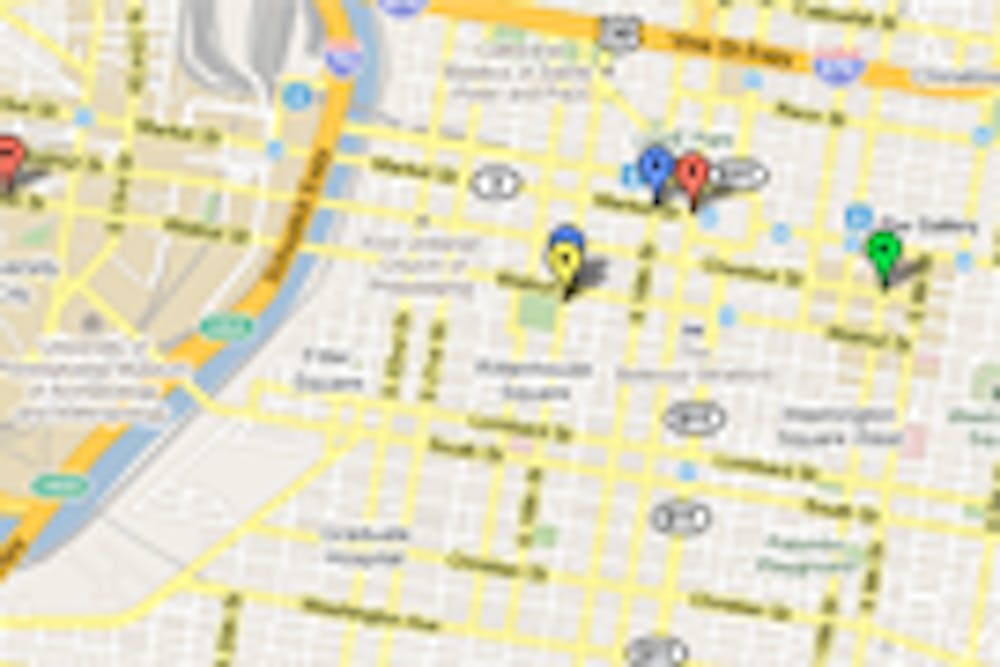
A map of farmers markets around Philadelphia. A club lets people order locally produced foods year-round. Related article: Buying club lets fresh food survive winter
When November arrives, farmers’ markets may lie fallow, but fresh produce is not entirely lost.
From November to April, the Philadelphia Winter Harvest Buying Club allows individuals to order online from a list of over 500 food items grown and procured in the Philadelphia region, such as milk, baked goods and herbs. The majority of food is from certified organic farms, and most dairy, poultry and meat products are from organically raised animals.
Philadelphia-based Farm to City, which runs the buying club, connects the community with farmers from the area.
According to Farm to City founder and director Bob Pierson, customers approached farmers in 2001 requesting local food products during winter months when farmers’ markets closed.
The club was created as “a way to get locally produced food during the winter,” Penn Environmental Group co-director and College junior Christiana Dietzen said. “It’s important to buy local food … because it cuts down on miles food travels which cuts down carbon emissions.”
The club maintains a delivery system to continue community-supported agriculture during the winter and spring months, said Pierson.
In the 2001-2002 winter season, roughly 50 people submitted orders. That number has since grown to about 400 individual orders monthly.
Pierson explained that the program also provides farmers with an income stream in the winter, a time when economic constraints pressure local farmers to engage in corporate farming practices — like using pesticides to increase crop yields — in order to lower their costs and thus food prices.
“One farmer told me he would have gone of out business without this buying club,” he said. But as a result of the club, “farmers have responded to demands by planting more winter crops and setting up greenhouses for the community.”
The club also promotes environmental stewardship by providing individuals with sustainably produced food, said Pierson.
The producers are selected based on the quality of their products and commitment to sustainable agricultural practices like pasture management and organic growing.
There are 25 pickup locations throughout Philadelphia and Delaware County, as well as Montgomery and Collingswood, N.J.. Students can collect orders at Hill College House.
College senior Tanvi Rastogi, a member of FarmEcology, organized Penn’s pickup location. About 20 Penn students order from the buying club on a regular basis, she said.
“The buying club is important because it brings local food to people who might not have access to it, especially in an urban community,” Rastogi added.
Individuals can order online at farmtocity.org. Products are delivered weekly .
The Daily Pennsylvanian is an independent, student-run newspaper. Please consider making a donation to support the coverage that shapes the University. Your generosity ensures a future of strong journalism at Penn.
DonatePlease note All comments are eligible for publication in The Daily Pennsylvanian.





